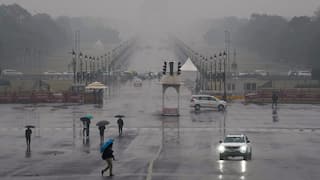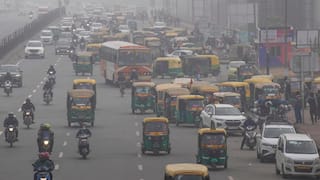Taiwan Hit With Cluster Of Earthquakes Measuring Between 4.5 And 6.3, No Casualties Reported
The epicentre of the strongest earthquake was 28 kilometres south of the city of Hualien, at a depth of 10.7 kilometres.

Multiple earthquakes hit the island republic of Taiwan on Tuesday, with the strongest measuring 6.1 on the Richter scale, according to the US Geological Survey. However, no casualties were reported. The epicentre of the strongest earthquake was 28 kilometres south of the city of Hualien, at a depth of 10.7 kilometres. The other quakes measured between 4.5 and 6, all with an epicentre near the city.
According to an Associated Press report, the Taiwanese earthquake monitoring centre said the first quake was of 6.3 magnitude. However, such small differences are common between monitoring stations.
Negligible Damage To Structures
Largely, only minor damage was reported to buildings. However, the Full Hotel in downtown Hualien partially collapsed during the quakes. Since it was under renovation due to the quake earlier this month, nobody was in at the time. Another building that sustained significant damage was Tong Shuai, which was also empty, as it is slated for demolition on account of destruction caused by the April 3 earthquake. The April 3 earthquake, the strongest in 25 years in Taiwan, was also followed by hundreds of aftershocks.
ALSO READ: 6.0 Magnitude Earthquake Jolts Taiwan Following Series Of Tremors: Meteorological Agency
A Reuters report quoted the director of Taiwan's Seismological Centre, Wu Chien-fu, as saying that these aftershocks were a “concentrated release of energy”. More could be expected in the coming days, but maybe not that strong, he added.
Powerful earthquakes are not new to Taiwan, but preparedness has helped the country stave off mass casualties or grave damage. There are strict standards for building construction, and widespread public education campaigns are held to boost awareness.
An April 7 report in The Guardian noted how “Taiwan has learned to react quickly to emergencies because of the omnipresent threats of natural or human-made disasters”.
“The island and its surrounding islets sit near the intersection of three tectonic plates in the world’s most seismically active region, known as the ‘ring of fire’,” it said.
Trending News
Top Headlines








































